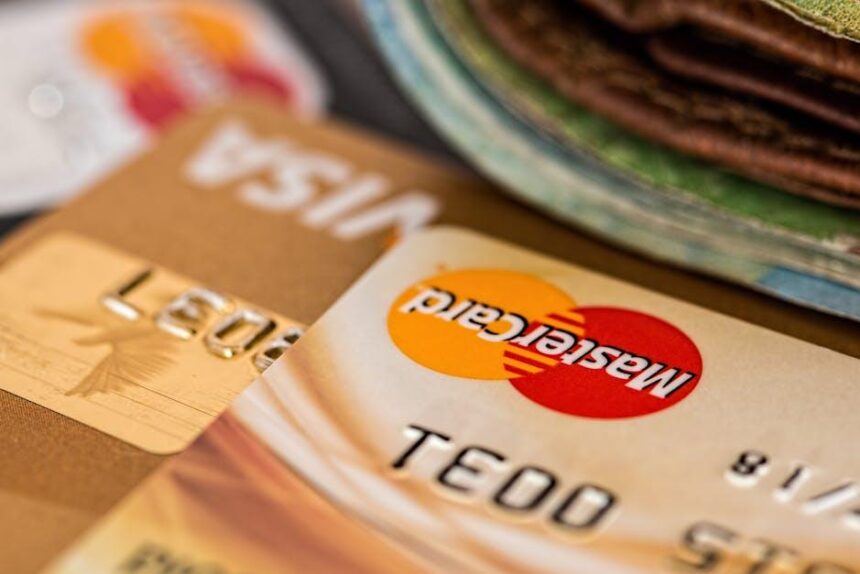In a world where credit cards can offer convenience and opportunities for rewards, choosing to cancel one is a decision that requires careful consideration. Whether you’re looking to simplify your finances, reduce debt, or simply eliminate an unused card, mastering the art of cancellation is essential for safeguarding your credit score and ensuring a smooth transition. This article will guide you through the process of cancelling your credit card safely and smartly, providing valuable tips and insights to help you make informed decisions while minimizing potential pitfalls. With the right approach, you can take control of your financial journey and pave the way for a more streamlined future.
Understanding the Implications of Cancelling Your Credit Card
Cancelling a credit card can have several implications that affect your credit score and financial health. It’s essential to understand these factors before making a decision. Here are the key points to consider:
- Impact on Credit Utilization Rate: One of the most significant factors in your credit score is your credit utilization ratio, which is the amount of credit you’re using compared to your total available credit. Cancelling a card reduces your available credit, potentially increasing your utilization ratio, which can negatively impact your score.
- Length of Credit History: The age of your credit accounts contributes to your credit score. Closing an older account can shorten your credit history, particularly if it’s one of your first cards, which may also have a negative impact on your credit score.
- Effects on Credit Mix: Credit scoring models often reward a mix of different types of credit (e.g., installment loans, credit cards). Canceling a credit card can reduce this diversity, potentially affecting your score.
- Potential Fees: Ensure there are no outstanding balances or fees. Some credit cards may impose closure fees, which could complicate the process. Always check with your provider.
- Consideration of Alternative Options: Instead of outright cancellation, consider options like downgrading to a no-fee card or lowering your credit limit if your concern is overspending or fees, which can help maintain your credit health.
- Future Credit Applications: A lower credit score can impact your ability to secure loans in the future. Lenders may view you as a higher risk, resulting in higher interest rates or application rejections.
It’s crucial to weigh these implications carefully before you decide to cancel a credit card. Understanding how this decision can affect your credit profile ensures you make a choice that’s aligned with your long-term financial goals.
| Aspect | Implication |
|---|---|
| Credit Utilization | Decreases available credit, potentially increasing your utilization ratio |
| Length of Credit History | May shorten your credit history, affecting your score |
| Credit Mix | Reduces diversity of credit, potentially impacting your score |
| Fees | Check for closure fees or outstanding balances |
| Future Credit Applications | Lower score can affect loan approvals and interest rates |

Strategically Timing Your Cancellation for Maximum Benefit
Timing your credit card cancellation is crucial for maximizing benefits and minimizing potential drawbacks. Here are some strategic tips to consider:
- Evaluate Your Credit Utilization: Before canceling a card, check your credit utilization ratio. Aim to keep this below 30%. Cancelling an account could increase your utilization rate, potentially affecting your credit score.
- Consider Your Credit Score: Timing your cancellation to coincide with your credit score check can be beneficial. If you’re planning to apply for a loan or mortgage, ensure your score is at its peak before making changes.
- Avoid Cancellation Before Major Purchases: If you have a significant purchase like a mortgage or car loan coming up, it’s wise to wait until after you’ve secured that financing. Lenders often review your credit just prior to approval.
- Cancel During Low-Activity Periods: If you notice a dip in your spending or don’t rely on a specific card, this could be a good time to cancel it without affecting your overall financial health.
- Maximize Rewards: If your card offers rewards or bonuses, consider timing your cancellation after you’ve collected enough points, especially before any yearly renewal fees kick in.
| Tip | Benefit |
|---|---|
| Evaluate Your Credit Utilization | Maintains a healthy credit score by avoiding increased utilization rates. |
| Consider Your Credit Score | Helps ensure your score is stable, optimizing financial opportunities. |
| Avoid Cancellation Before Major Purchases | Secures better loan terms and interest rates. |
| Cancel During Low-Activity Periods | Minimizes impact on daily spending and credit needs. |
| Maximize Rewards | Benefits from bonuses and avoids unnecessary fees. |
By following these strategies, you can make informed decisions about your credit card cancellations that align with your financial goals.

Navigating the Cancellation Process Seamlessly
When it comes to cancelling a credit card, understanding the process can save you time and anxiety. Here are some crucial steps to ensure a seamless cancellation experience:
- Review Fees and Terms: Before initiating cancellation, check if there are any cancellation fees or remaining balances. Many American banks have different policies that can affect your decision.
- Pay Off Your Balance: Clear any outstanding balance to avoid penalties. This step can also enhance your credit score, as high credit utilization may have a negative impact.
- Contact Customer Service: Reach out to your bank’s customer service. Prepare relevant information such as your account number and personal identification for a smooth process.
- Request Confirmation: After cancellation, ask for a written confirmation. This will serve as proof and help avoid future disputes.
- Monitor Your Credit Report: Check your credit report closely after cancellation to ensure no erroneous charges appear or that the account remains reported as closed positively.
Be aware that cancelling a credit card can impact your credit score. Typically, the score is affected by:
| Factor | Impact |
|---|---|
| Credit Utilization Ratio | May increase if total available credit decreases |
| Length of Credit History | Can decrease if an older card is cancelled |
| Payment History | Remains unaffected if paid off |
By following these guidelines, you can handle credit card cancellations confidently. Making the choice to close a card should always be based on informed decision-making to protect your financial health.

Protecting Your Credit Score: Smart Steps to Take
When the time comes to cancel a credit card, protecting your credit score is a crucial consideration. Whether it’s due to high fees, poor rewards, or simply the desire to simplify your finances, it’s essential to approach cancellation strategically. Here are some smart steps to take:
- Check Your Credit Utilization Ratio: Your credit utilization ratio is the percentage of your total available credit that you are currently using. Aim to keep it below 30%. Canceling a card can reduce your overall credit limit, potentially increasing this ratio.
- Pay Down Outstanding Balances: Before closing any account, make sure to pay off any remaining balance. This helps avoid lingering fees and improves your credit profile.
- Assess the Impact on Your Credit History: The length of your credit history is an important factor. If the card you plan to cancel is one of your oldest, consider keeping it open, even if you’re not using it frequently.
- Consider Timing: Timing can be everything. Avoid canceling a card before applying for a loan or mortgage, as lenders often review your credit shortly before approving your application.
- Request a Credit Limit Decrease: If you’re concerned about overspending but don’t want to close an account, consider asking your issuer for a lower credit limit instead.
Documentation is key. Make sure to:
- Confirm Cancellation in Writing: After you cancel, send a written request to your credit card issuer to confirm the account closure. This ensures there are no misunderstandings.
- Check Your Credit Report: After a few weeks, review your credit report to ensure your account is marked as closed and the balance is reported accurately.
Here’s a quick reference table for key factors impacting your credit score:
| Factor | Importance | Impact of Cancellation |
|---|---|---|
| Payment History | 35% | No direct impact if payments were on time |
| Credit Utilization | 30% | Can increase if overall credit limit decreases |
| Length of Credit History | 15% | May decrease if the account is old |
| Types of Credit Used | 10% | Variety can improve score |
| New Credit Inquiries | 10% | Limited effect if not frequently applying |
By following these steps and guidelines, you can successfully cancel your credit card while minimizing any negative impact on your credit score. Remember, managing your credit wisely is key to maintaining a strong financial profile.

In Summary
In conclusion, mastering the art of canceling your credit card safely and smartly is an empowering step on your financial journey. It not only helps you regain control over your spending but also encourages mindful financial habits for the future. By following the steps outlined-evaluating your current card’s benefits, paying off your balance, and communicating effectively with your issuer-you can navigate this transition with confidence. Remember, it’s not just about severing ties with a card; it’s about forging a stronger path toward your financial goals. Embrace this opportunity to reassess your needs and preferences, paving the way for smarter financial decisions ahead. Your credit score and peace of mind will thank you!











